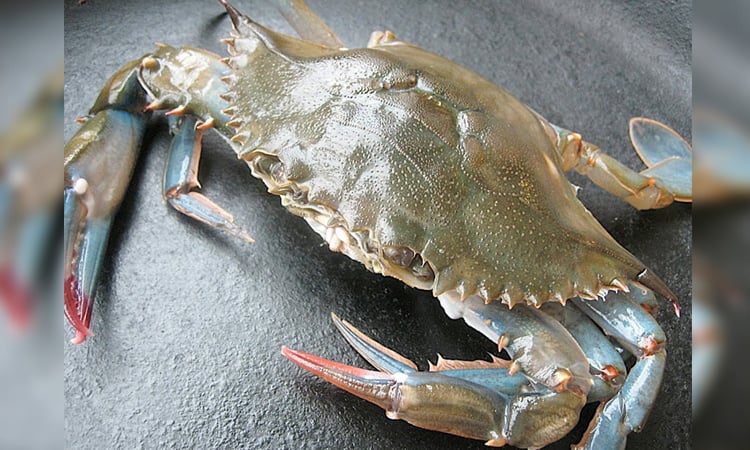News Flash

CHATTOGRAM, Oct 21, 2025 (BSS) - Crab farming is rapidly gaining popularity in Maheshkhali Upazila of Cox's Bazar district. Surrounded by the sea, this island holds great promise for crab cultivation, with thousands of locals now involved in crab and shrimp farming.
Shahadul Islam, the Upazila Fisheries Officer of Maheshkhali, told BSS that exportable crabs and shrimp are currently being cultivated on approximately 30,000 acres of land across various parts of the upazila. Key farming regions include Sonadia, Ghativhanga, Kutubjom, Hoanok, Kalamarchhara, Shaplapur, Dhalghata and Matarbari.
"Crabs produced in Bangladesh are exported to 18 countries, including those in Europe, North America, South Korea, Egypt, Zambia, Ghana, China, Japan, Hong Kong, and Thailand," he said.
According to the Export Promotion Bureau, Bangladesh earned Tk 867.88 crore in foreign exchange from crab exports in the 2024-25 fiscal year, almost three times more than the previous year. Crab is currently the second-highest exportable fish product in the country.
Locals said many families in Maheshkhali now depend on crab farming as a primary source of income. Experts believe that, with adequate government support and training, crab farming could significantly contribute to poverty alleviation and foreign exchange earnings.
Crabs are typically collected from shrimp ponds, river estuaries and coastal areas, showcasing the vast potential of the sector.
Crab farming has now become a thriving commercial venture in many parts of the upazila.
Shanti Lal Nandi, a local crab trader, explained crabs are bought from local collectors at prices ranging from Tk 200 to Tk 400 per kg, depending on their size. These are then sold to exporters in Dhaka and Chattogram at prices ranging from Tk 300 to Tk 500 per kg before being shipped abroad.
In Maheshkhali, it is common to cultivate shrimp and crabs together in the same farms.
Rubel Das, a crab collector from Hoanak Barachhara village, said he collects 4 to 5 kilograms of crabs daily from canals, rivers, and coastal forests. He noted that crab farming can be a profitable business, requiring relatively low capital and effort.
Fisheries Officer Shahadul Islam also highlighted that baby crabs reach maturity within 15 to 20 days, making crab farming a fast-yielding venture.
Another crab trader, Narayon Das, said he earns Tk 25,000 to Tk 30,000 per month through crab trading. He noted that female crabs, especially those weighing between 250 to 450 grams, are in high demand both locally and internationally, fetching prices of Tk 850 to Tk 900 per kilogram.
Narayon Das also suggested that training workshops conducted by the District Fisheries Office or private NGOs could inspire more people -- farmers, depot owners and traders -- to enter the crab farming business.
He added that easy access to bank loans could help bring unused and abandoned lands under crab cultivation.